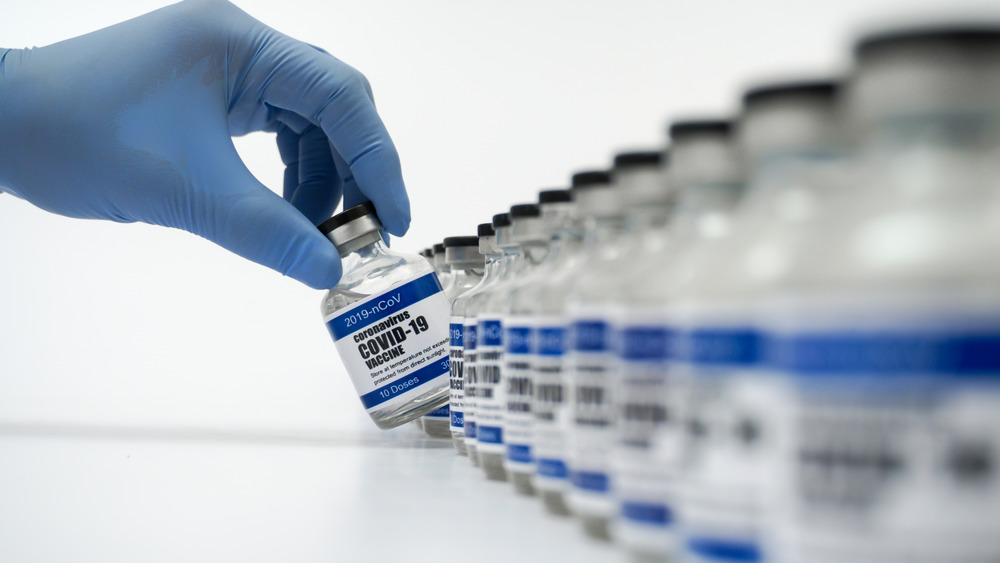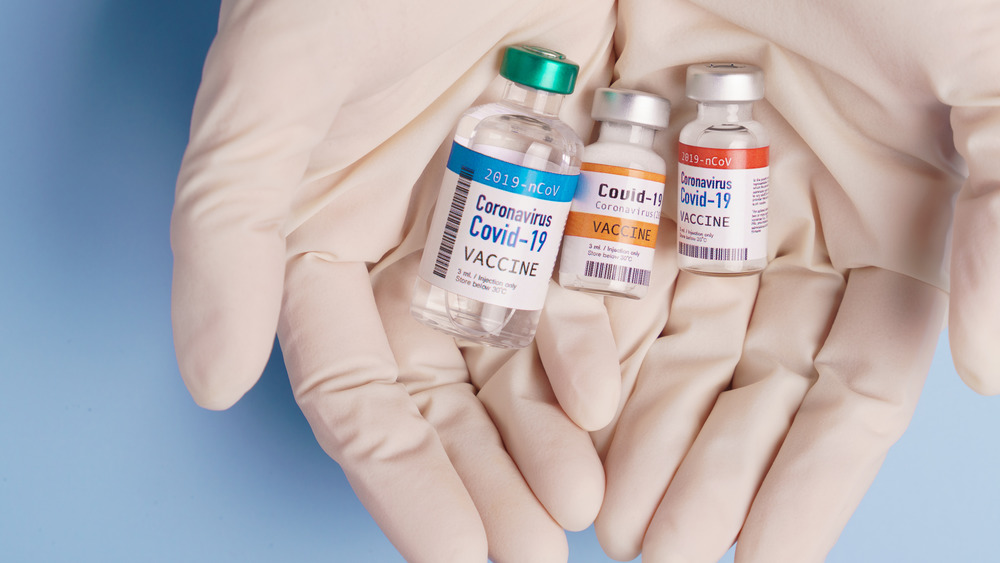This Is How Often You'll Need To Get The COVID-19 Vaccine
The latest vaccine to be given emergency use authorization status by the FDA is Johnson & Johnson's single-dose COVID-19 shot (via FDA). The new vaccine was tested on over 39,000 people and proved to be 85% effective in preventing severe/critical COVID-19 at least 28 days after participants received it. This is the third vaccine to be recommended by the CDC for people over 18 years old, following the lead of Pfizer-BioNTech and Moderna (via The Washington Post). But even though the new vaccine can be administered with just one shot, doctors are warning that the coronavirus is not going away and that we should be prepared for more vaccinations in our future.
Pfizer CEO Albert Bourla recently told the press that shots for COVID-19 may become an annual occurrence (via Bestlife). Even those that have already been vaccinated this year may be required to get a third dose to help protect themselves against COVID-19 variants that are circulating widely in South Africa and parts of South America. Much like the flu, coronaviruses naturally mutate over time. And just like a new flu vaccine is needed every year to protect against new mutations, people will most likely require new vaccines annually to keep coronavirus mutations at bay.
Here are the next steps in the vaccine trials
Pfizer is currently doing trials of booster shots on people who have already been vaccinated. The boosters will be given 6 to 12 months after the participants receive their second shot of the initial vaccine series. The pharmaceutical company plans to include as many as 144 of the Phase 1 participants in the booster trial. They will be split into age cohorts of 18-55 and 65-85 years of age (via Pfizer).
Plans are also being made to rapidly develop a new version of the current mRNA-based vaccine to address variants that the original vaccine does not protect against. There has not been evidence that people who have been vaccinated with the current Pfizer-BioNTech formulation are not also immune to the current variants, but the company is not waiting around for new strains to emerge before starting on the development of a new vaccine. The CDC continues to provide updated information about who should be vaccinated and when each group should be given the vaccine.


